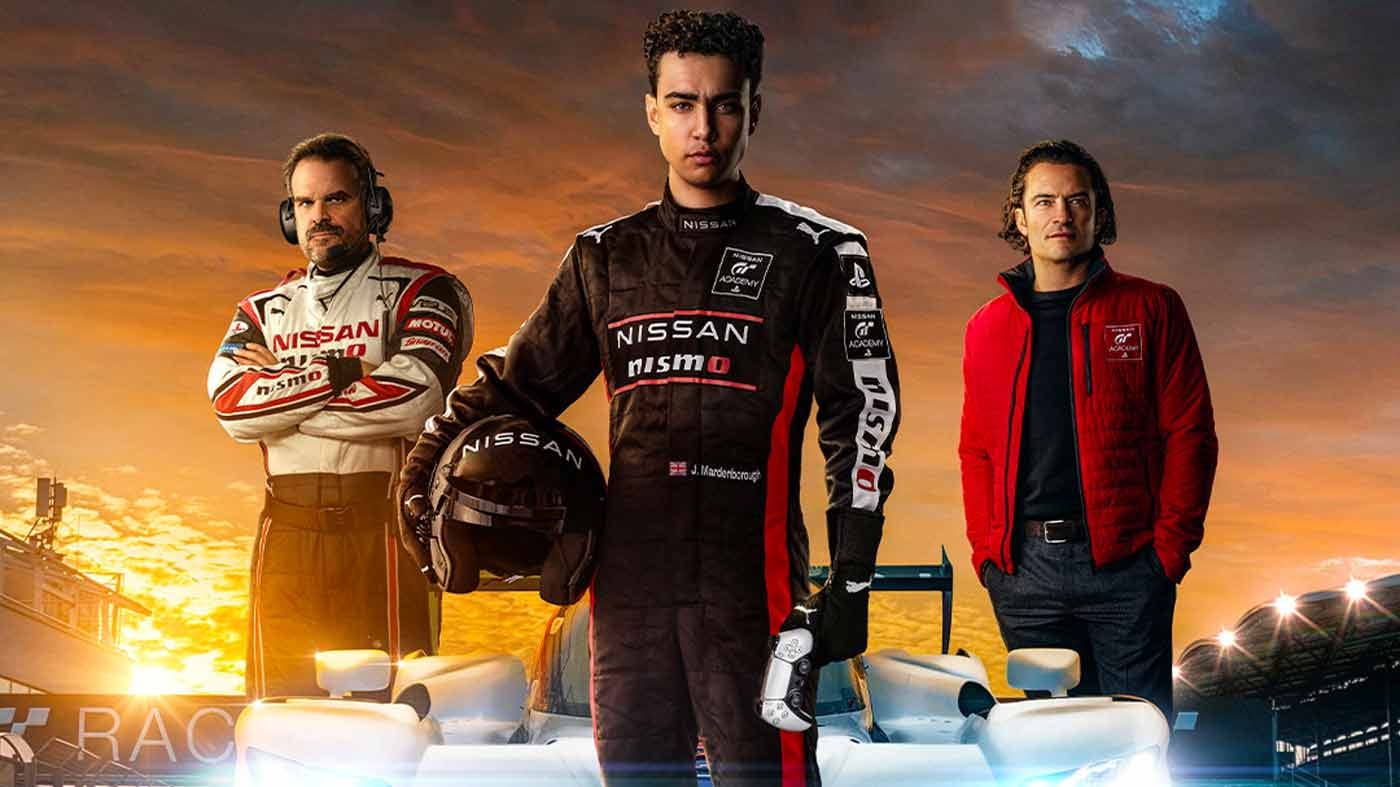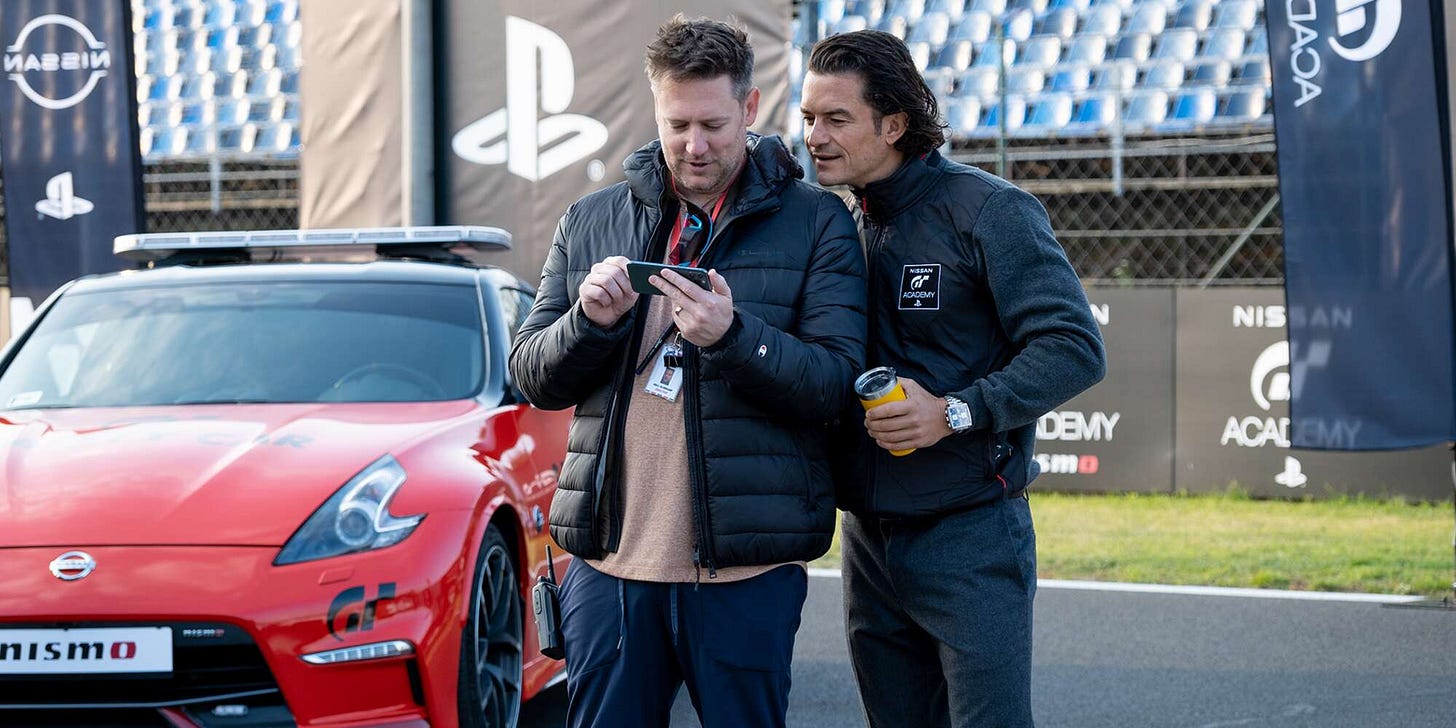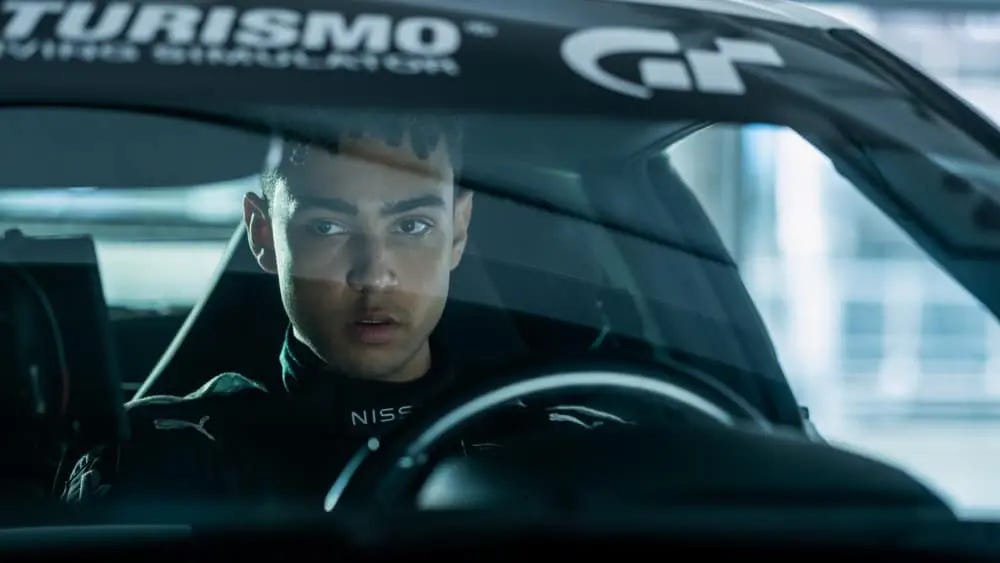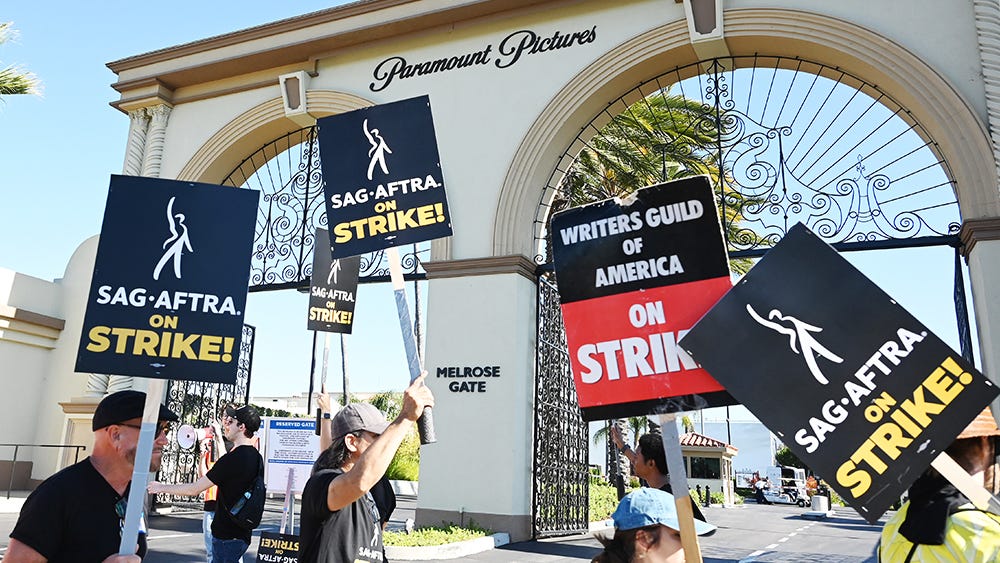Racing is a cinematic sport by nature. It’s high octane, colorful, and really hard to capture, therefore making it a treat when it’s filmed right for our viewing pleasure. There are incredibly practical and character driven racing films like Ford v. Ferrari, there are blends of B-movie action and swagger that come from the Fast and Furious films, and then there are digital marvels like Speed Racer that use the craft and the sport in creative ways to comment on real world politics and ingenuity. With Gran Turismo, the second feature film from the newly formed Playstation Studios, they’re able to capture the ethos of all three.

Gran Turismo is a true story, all about how Jann Mardenborough went from a young video game player in his bedroom, racing cars in the digital simulator with the same title as the film, to being a professional racing driver. And it wants you to know that too, flashing the fact that’s it’s true on a card right after the title graphic and then subsequently beating you over the head with lines of dialogue throughout the film like ‘this isn’t a video game’ and ‘in the real world people die.’ It’s on the nose but it knows what it’s trying to be; also ensuring that the efforts and accomplishments of Mardenborough aren’t undermined by the fact that the movie is titled after the game.
With all that being said, the film had an uphill climb for me to like it, because I’m not the biggest fan of the work Neill Blomkamp has done in the past. I’ll admit right off the bat that I haven’t seen District 9 yet, but Elysium and Chappie were two of my least favorite movies of last decade. For the longest time, Blomkamp’s work seemed like a mirror image of Zack Snyder’s, bringing out an influx of oddly dedicated fans just because the visual style is cool. With Gran Turismo, he showed me that — along with his marquee visual style — the emotion and character work that was missing from the aforementioned films was within his repertoire.
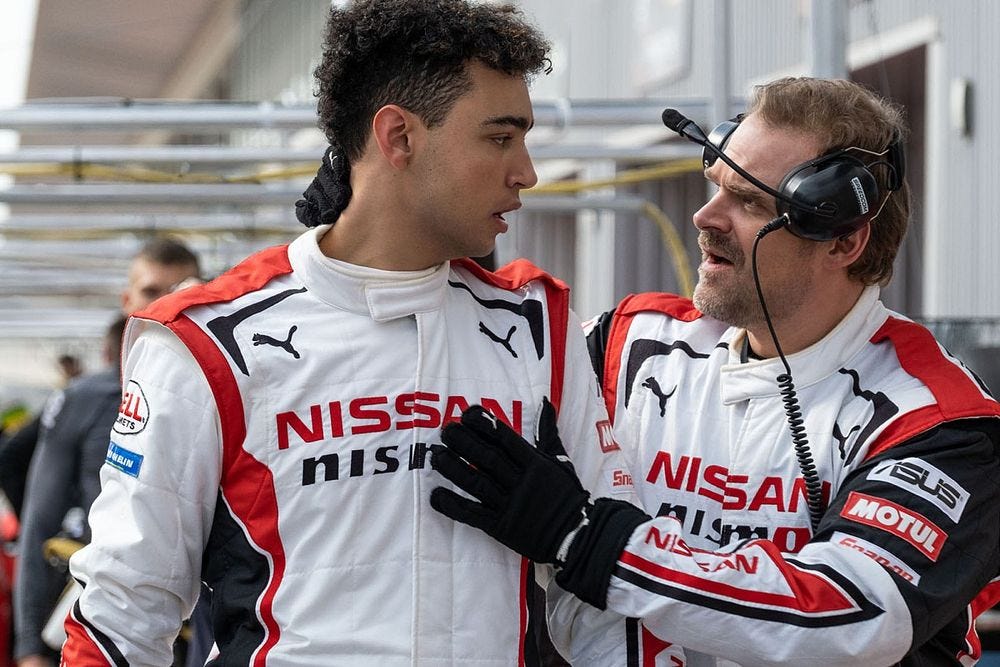
The relationship between our main character, Jann, and his father is a strained one, with Jann’s love of racing being something that his father can’t comprehend or support because of its un-achievability. A strained father and son relationship is a classic emotional basis for many film or story, but it also adds to Jann and, his mentor, Jack Salter’s relationship. He found someone, with his father’s competitiveness, that would push him in the way he needed and support him in the language that he understands. And with a third act that is heavily charged by emotions after a life-altering event, it put to bed all my gripes with the previous works I had seen from Blomkamp and let me sit back and just have a great time with this fun ride of a movie.
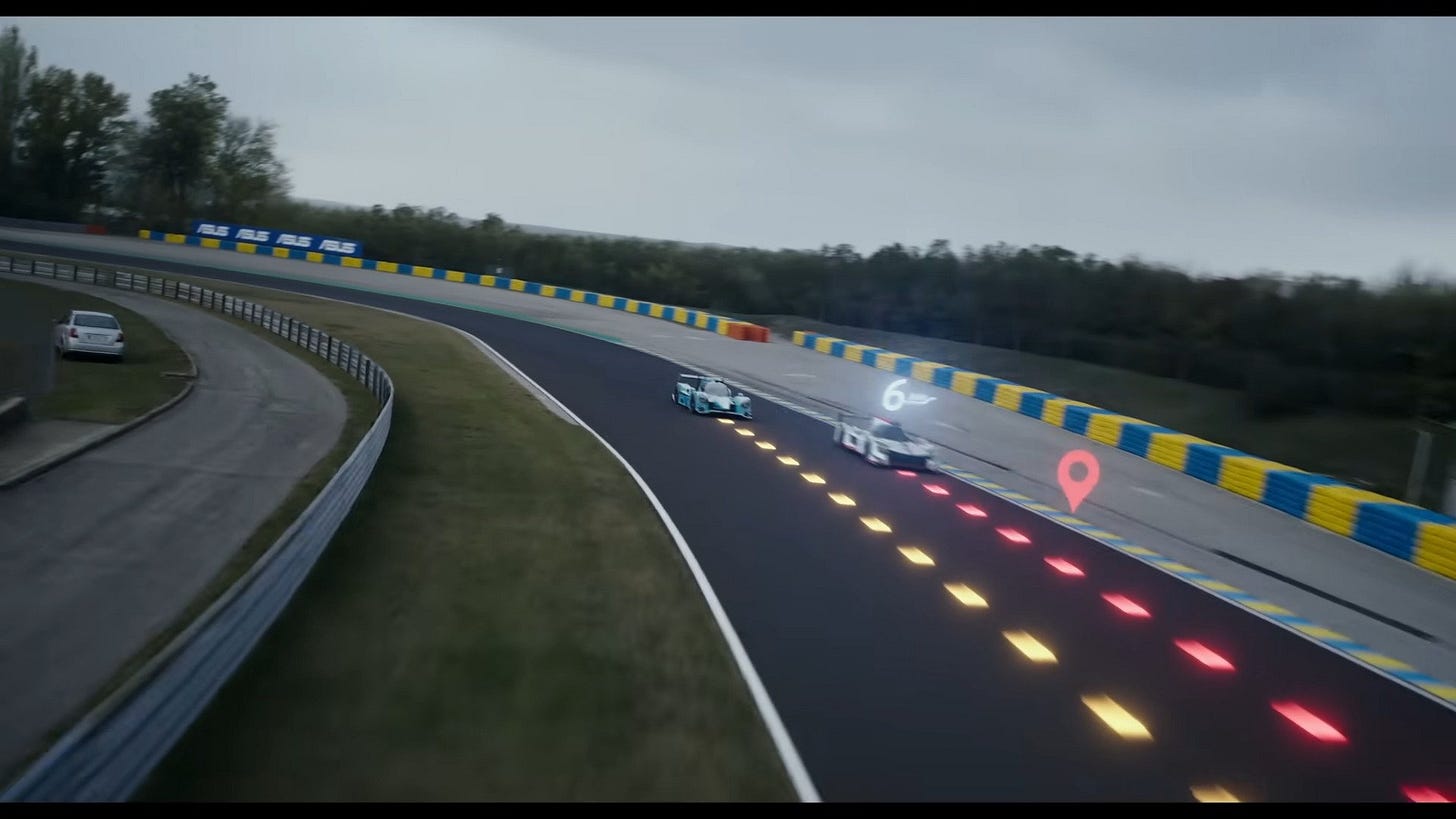
A lot of the fun stems from the genius choices that were made with the visuals in the film. The basis of this film revolves around the video game, therefore it has to have a couple of ties to that franchise. When Jann is playing Gran Turismo earlier in the film, he imagines he’s driving an actual car, but when he becomes a racer, he imagines he’s playing the video game. This allows for visual fluidity between the character and the audience, showing the audience what Jann will do next based off of his visualization of the video game racing lines, as well as keeping track of who’s in what place during races with digital place markers and Playstation sounds over the tops of opponents. Outside of the digital effects, the actual racing is really well done, only being made that much better when you find out that Jann Mardenborough did the stunts for his own movie.
I do have to end by saying that the movie isn’t spectacular by any means, serving more as a greatest hits of this journey than delving deep into any of the minutia. Moments where you’re expecting a really well done training montage, which could have been placed multiple times throughout the film, are missing altogether. It makes the film lack fluidity, as these teenagers and young adults with absolutely no experience driving cars at high speeds are thrust behind the wheel for head to head tryouts almost immediately as far as the viewer’s concerned. It doesn’t take away from the story they’re telling, but it did cause me to pause and wonder why they skipped over it, with training montages being the best part of a lot of sports movies. I chalked it up to the film’s two hour and fifteen minute runtime, which felt just right while sitting in the theater but could’ve definitely felt long with those montages that I wish were there.
Due to the writers and actors strikes, most of the people that would usually go around and market newly releasing films during this time are not allowed to because of supporting their union, which could end up hurting the turn out for this film. I urge you to please go and see this. As I mentioned earlier, this is a true story, making it that much more appealing and impressive for all audiences, and going and supporting something like this shows Hollywood and their producers that more stories like this are profitable for them. If you like great character stories that are inspirational and well made, you’ll be happy you went and saw this. You may be able to catch an early screening but, if not, the film opens in theaters on August 25.a



